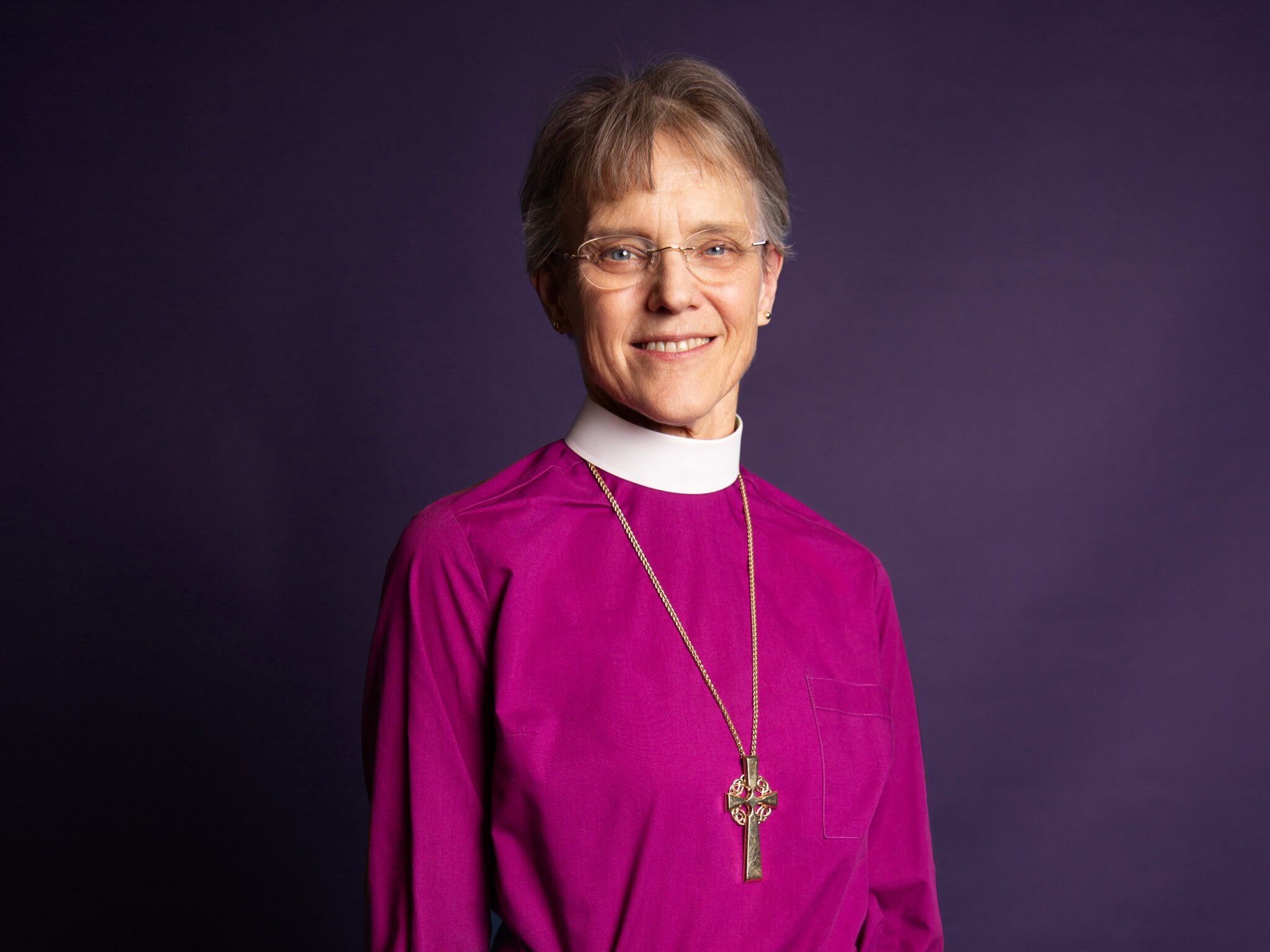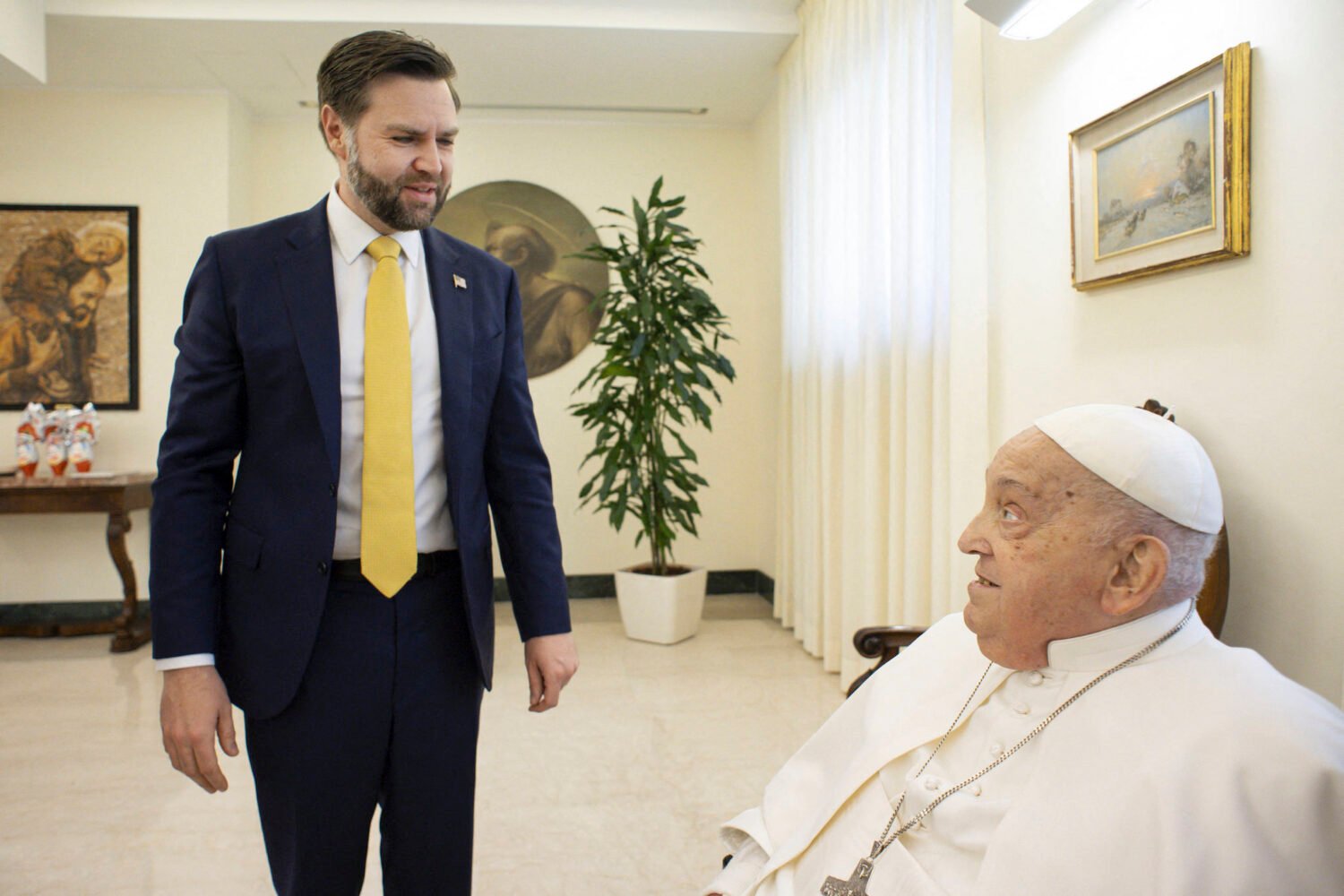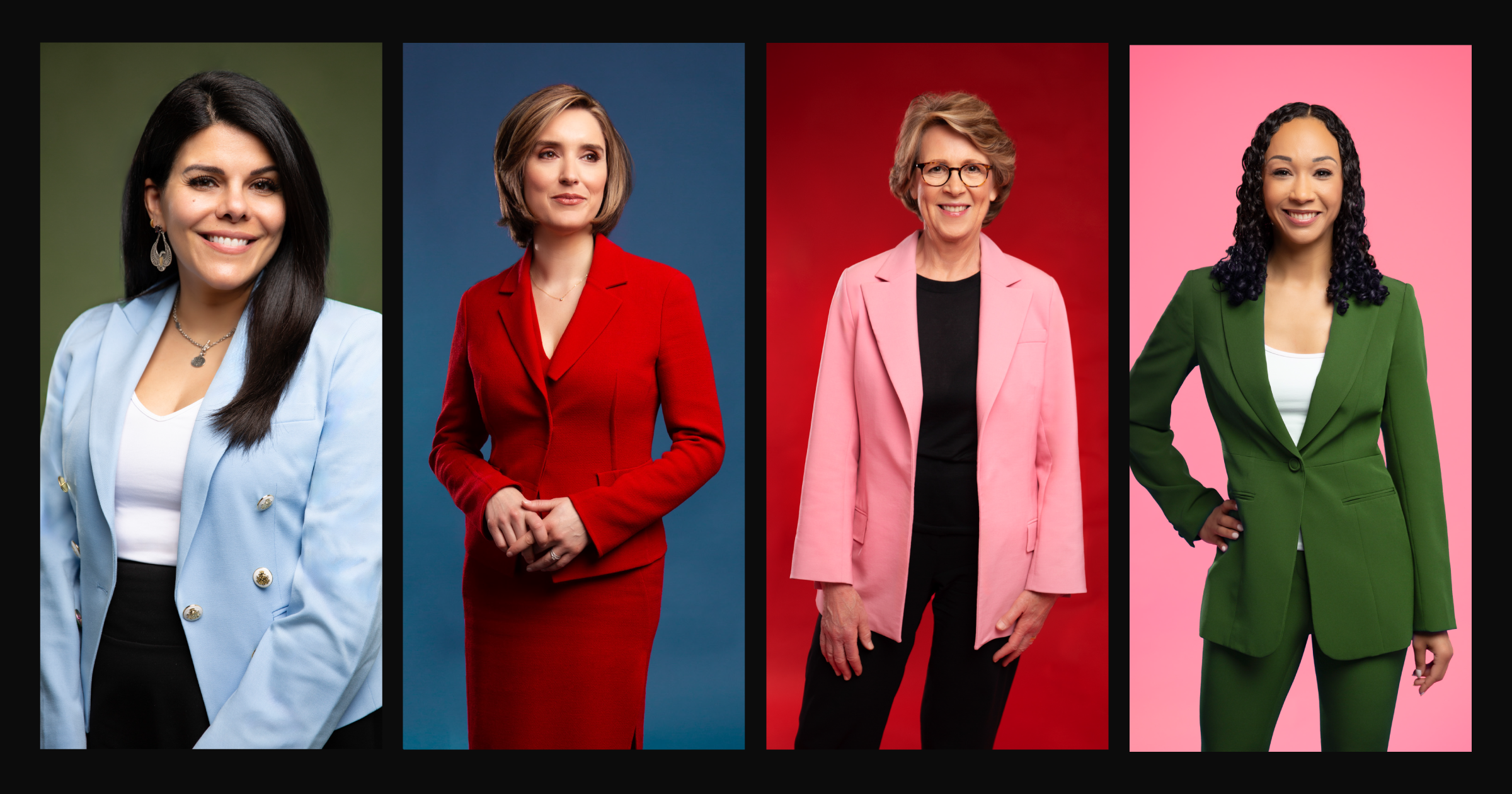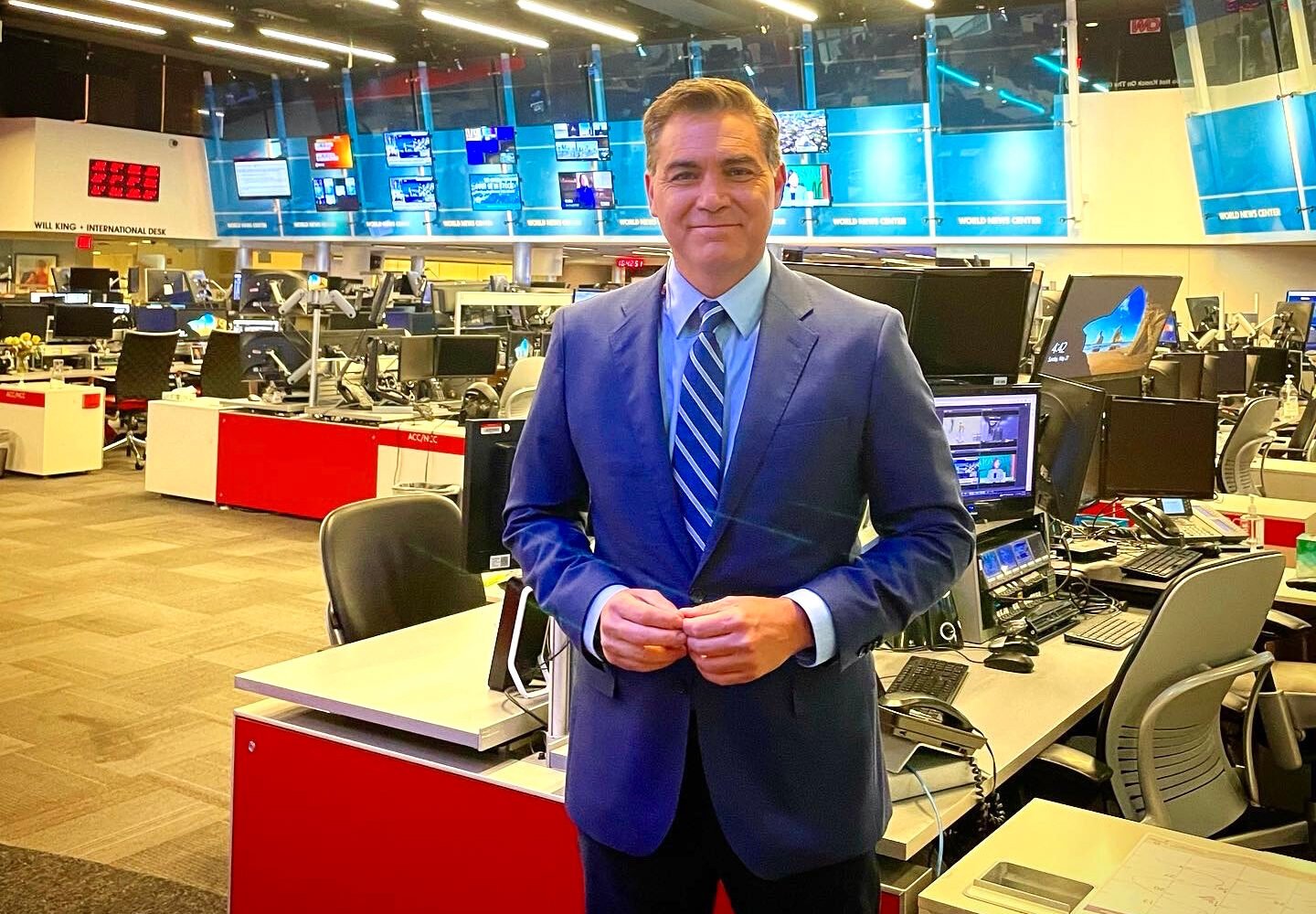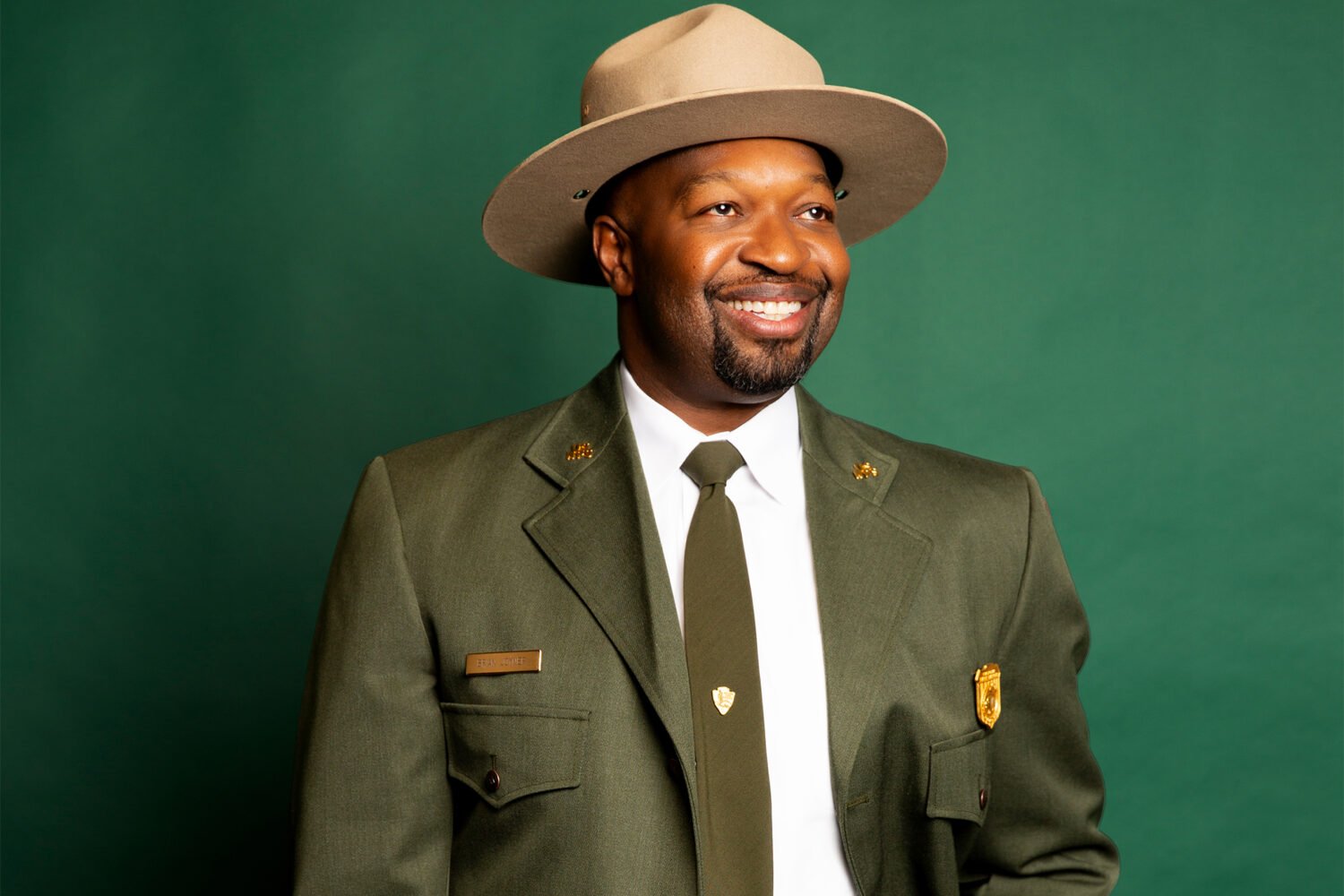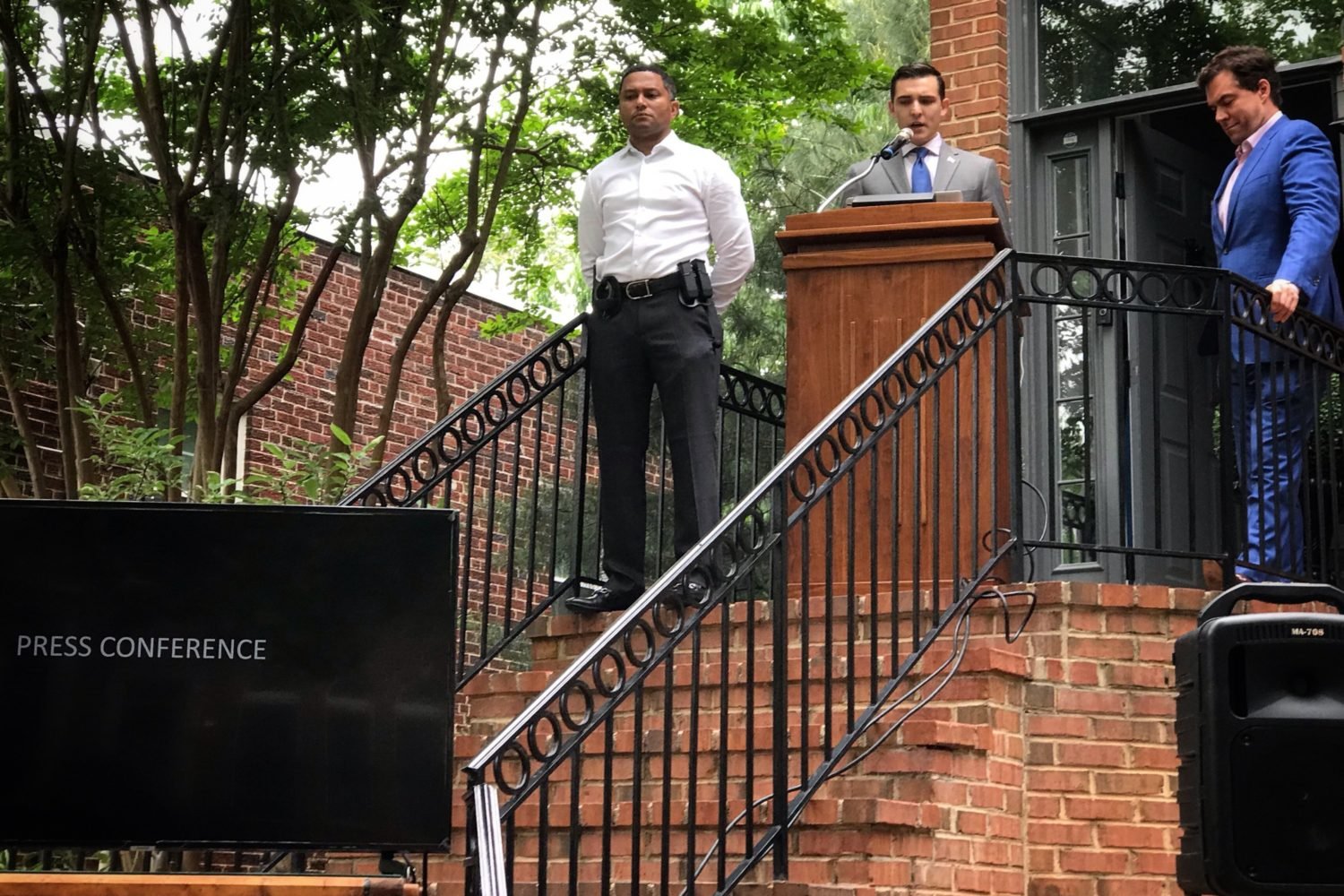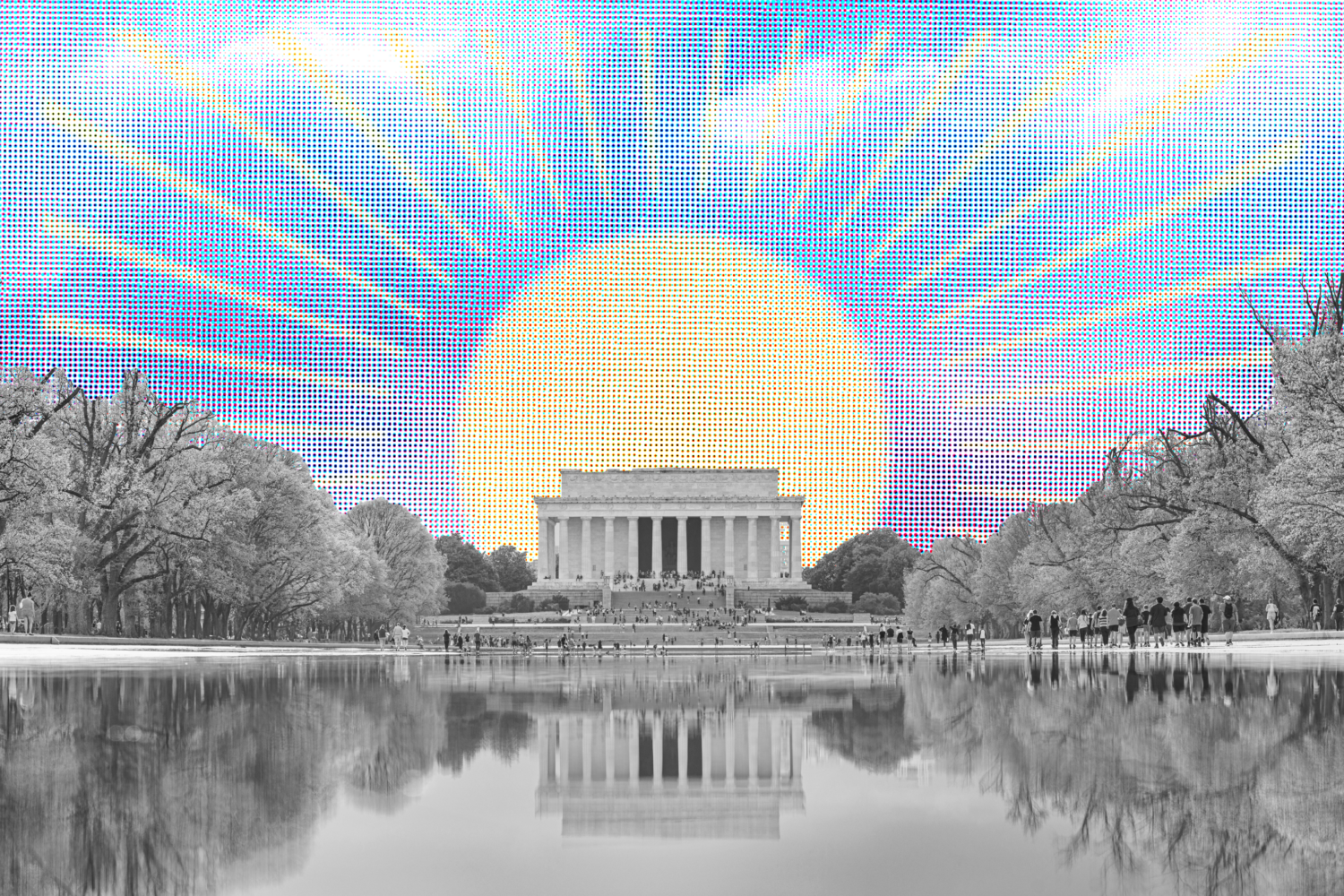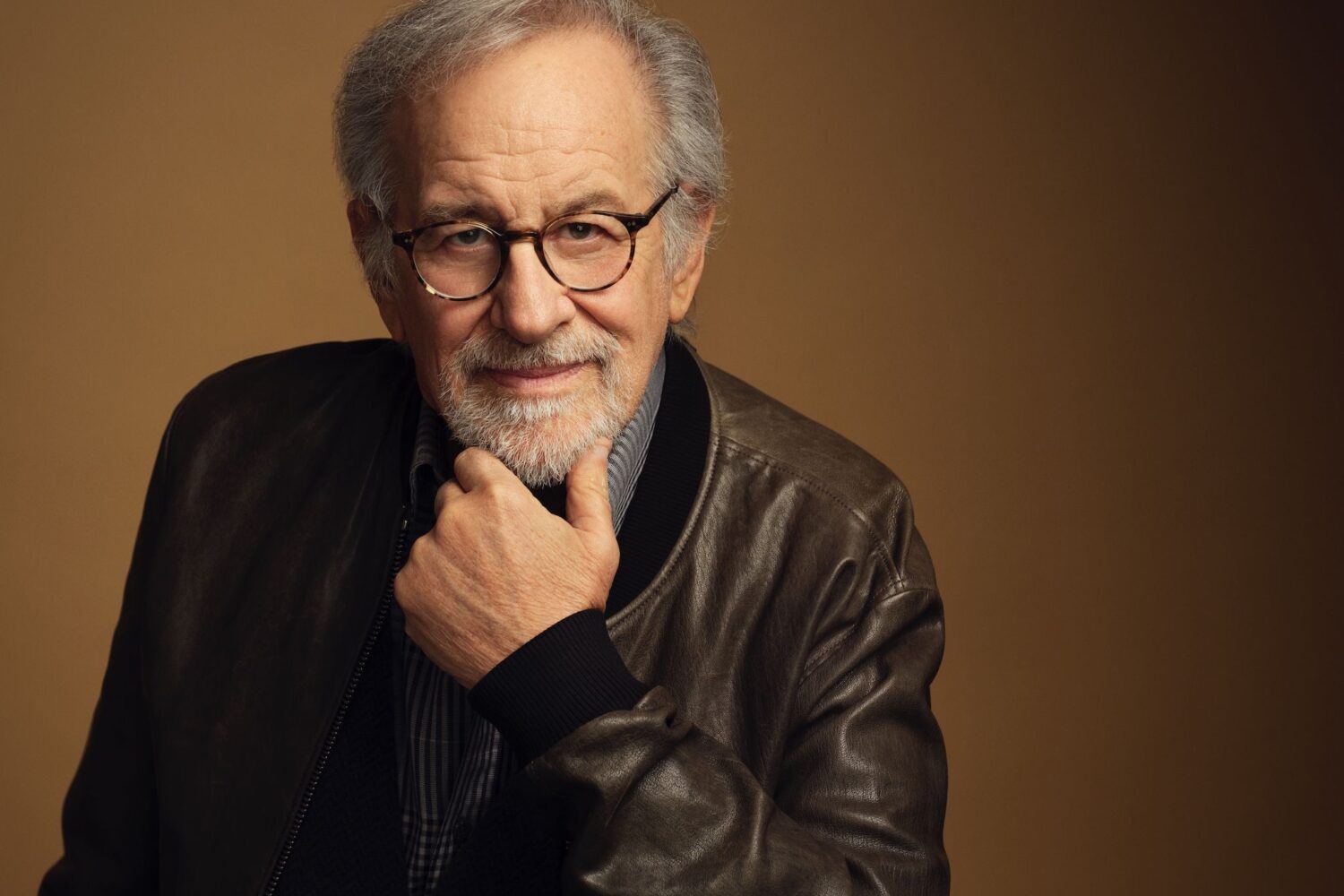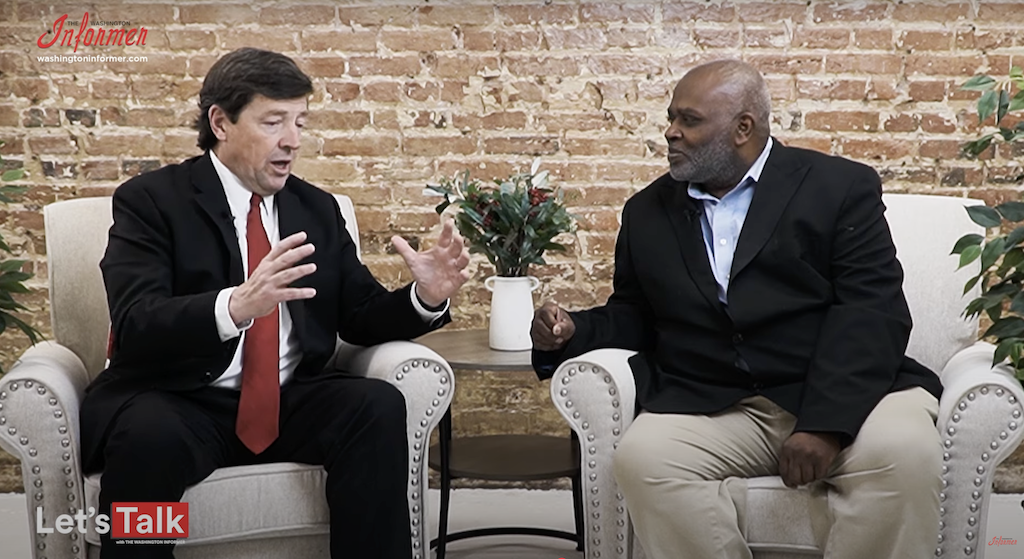The day after Donald Trump’s inauguration, the Episcopal Bishop of Washington delivered a sermon at the National Cathedral, which became—unexpectedly—one of the newsiest events of that week. From the pulpit, Mariann Budde spoke directly to Trump, who was seated in the front row. “I ask you to have mercy upon the people in our country who are scared now,” she said, invoking gay, lesbian, and transgender children, as well as undocumented immigrants and asylum seekers. Her plea for mercy caused an international firestorm; critics condemned her politicization of the church, and admirers praised her courage.
Prior to her current post, Budde spent 18 years as a parish priest in Minneapolis, where she gave weekly sermons, officiated weddings and baptisms, and provided pastoral care. Then, in 2011, she became a bishop—one with an unusually influential perch. Her role is to oversee 86 churches in DC and Maryland, including Washington National Cathedral. We recently spoke with her about the political dimension of her faith. “There’s nothing that says a Christian can’t be involved in politics,” she says. “Scripture teaches us to be committed to the issues that affect the common good.”
On Truth Social, the President called you a “Radical Left hard line Trump hater” who was “ungracious” and “nasty in tone” and “not compelling or smart.” He suggested that your service was “boring and uninspiring” and that you’re “not very good at [your] job.” Would you like to respond to that?
[Laughs.] I guess he didn’t like it, huh? He’s entitled to his opinion about all of those things. And he’s not the first person to say that Episcopal worship is boring, so I take the critique. In terms of my political leanings, I try my best to ground my views on the teachings of my faith.
Now, do I have a leaning that would be in contradiction to many of the things that the President wants to accomplish? Actually, yes. That doesn’t make me a Trump hater. That just means I see the world differently. You can listen to the sermon—I don’t think it was nasty in tone, but how he experienced it is his own opinion. I guess I’ll leave it at that.
Was there something that made you feel obligated to address him directly?
These themes had been consistent throughout the campaign—the very directed attacks on immigrant populations, characterizing them almost entirely as criminals and a danger to Americans. And casting the gay and lesbian community in such a negative light, particularly the very small number of people in this country who identify as transgender. And I thought: He’s claiming the mantle of being a unifier and even a peacemaker, but there are a lot of people in this country who do not fit into his vision. I wanted to assure those people that they were seen and that their presence here is of great value. It was to say, “We see you and you are a part of us.”
What did it feel like to say that to the President?
I’m not sure I remember how it felt. I get nervous anytime I speak publicly—like anyone does when you’re standing in front of a thousand people. And I was aware of the magnitude of the moment, to be sure. I was conscious of the fact that I had been given uninterrupted speech to a very important group of people at a very important moment. I felt the awe and the weight of it.
How do you make sense of the aftermath?
Well, the response from the President and the people who surround him was immediate and condemning, and that set off a wave of responses that were fairly harsh and sometimes vitriolic—demanding an apology, suggesting that I didn’t belong in this country, suggesting it would be a good thing if I were harmed in some way. Then I received an enormous expression of gratitude and support from another section of the country. I can’t tell you if it’s in balance or not, because I don’t have time to absorb all of it.
I wish I could respond, but the volume is simply beyond my capacity and that of my team to absorb. I don’t quite know what to make of it, except I think it’s more reflective of where the country is and where the world is, rather than it being about me. It’s more about what people are feeling for themselves.
What were your formative experiences of faith?
It’s hard to know exactly when faith begins. I certainly had spiritual leanings or impulses as a child. I think most children do. But it became a conscious journey for me when I was a teenager. A friend of mine invited me to her church and I went, and there was an invitation at the end of the service for anyone who wanted to—I think the wording was to “receive Jesus into your heart.” That sounded like a really wonderful thing to me. I had no idea what it meant. But I found myself up there and received this very gentle and kind prayer from a gentle and kind pastor. There was no lightning bolt or immediate transformation, but I did feel that something important had happened to me.
That church was not Episcopal–it was fairly fundamentalist. What did you love about it and why did you leave?
I loved the music, I loved the people. They gave me a ballast at a time when my family life was in considerable disarray. So that was all to the good. But at the same time, [I bristled at the] narrowness of that church and the rigidity of its interpretation of Scripture—it was so decisively clear about things that didn’t seem clear to me at all. The teaching that we are on the correct path and it’s a very narrow path and it’s our job to help everyone else walk this same path of faith—even at 17, I couldn’t quite make sense of that. I wanted a place where doubt and complexity and the nuance of human experience could be acknowledged and even celebrated.
Then I moved. I had been living with my father and stepmother in Colorado, but I went to live with my mother in New Jersey, and she had been attending an Episcopal church. It was a lifesaver. It allowed for a more expansive and generous understanding of God and of what it meant to be a human being, and also a more curious and accepting posture of other faith traditions. I found that this was just a better fit for me—it resonated with how I seem to be oriented in this world. I experience the Christian faith not as an exclusionary path but one that opens us to embrace and love and serve all people. It has allowed me to expand in my appreciation for the grandeur of the world and the mystery of the human experience, to be humbled at the power of evil but also to know that we all have the capacity for tremendous good.
Not every person is necessarily worthy of our respect. Not everyone is somebody that I would like. But they’re still human beings. They’re still worthy of kindness.
Jesus tells us to love our neighbor, and many of our neighbors are MAGA now. How do you think about that?
In fact, if you come to an Episcopal church this Sunday, [Jesus] is not going to tell you to love your neighbor—he’s going to tell you to love your enemies. I mean, he just keeps upping the ante. So love is a practice, love is an orientation. Love is a way of treating people as worthy of their innate dignity as fellow human beings and children of God.
Now, not every person is necessarily worthy of our respect, because respect needs to be earned. Not everyone is somebody that I would like. But the people who have come into our communities and into our churches who are thrilled with the changes that are happening—they’re still human beings. They’re still worthy of kindness. If they were to seek pastoral support, they are to receive it in the same way as anyone else. If they were to come into our hospitals, the doctors wouldn’t ask who they voted for. We don’t ask those questions of each other when we’re just treating each other with the common decency of one human being to another.
Are there limits to this?
I would say that the boundaries are around behavior—acceptable manners of speech, the ways that we treat one another—not opinions and beliefs. We are all sinners in the sight of God. None of us is perfect, we all have our capacities for harm. But where the boundaries need to be drawn are in our actions. We are all guilty of that—you can be a really obnoxious liberal and say very harmful things, so it’s not a partisan thing, it’s a human thing. We all need to be reminded of some basic practices of decency and kindness.
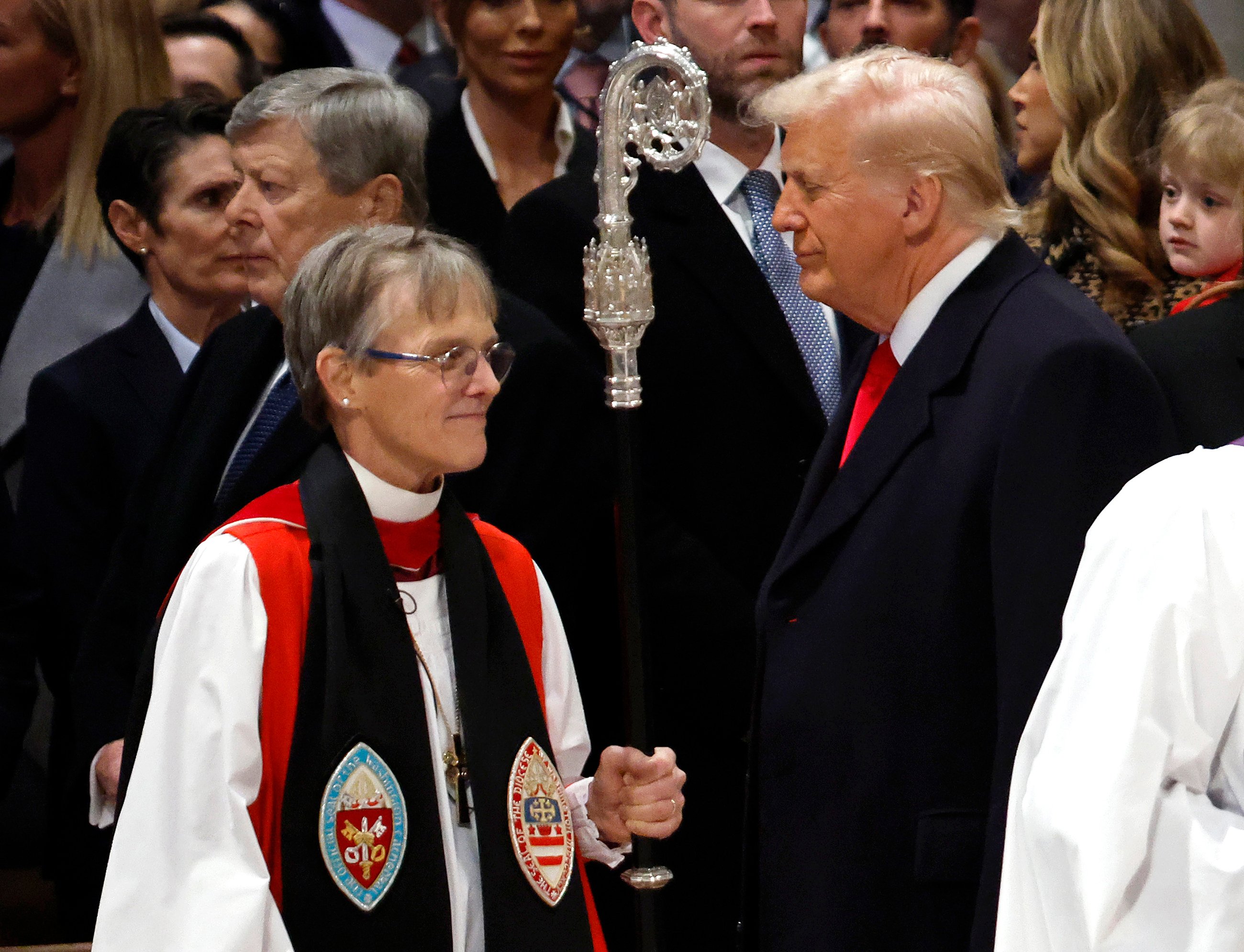
Do you love Donald Trump?
Well, I strive to. I don’t know Donald Trump, and I find the impact of his behavior and his words heartbreaking and frightening sometimes. But as a human being, if he were to come into my world and we were to sit and have a conversation, I pray that my response to him would always be one of kindness and respect and love. Love is a choice in that sense. It’s not a feeling. It’s not being in love. It’s not the kind of love that I feel spontaneously for the people in my closest circle. That’s not the kind of love that Jesus is talking about: He was talking about a sacrificial, self-giving love that has no partiality, and that’s a life discipline. It’s something to strive for. I strive for that with every human being. I’m not always able to attain it, but that is the standard to which I’m called.
Your job can be heavy. How do you stay receptive to joy?
We are social beings. We learn from watching each other, for good or for ill. So I watch other people a lot—people whose qualities of being I admire. I pay attention to how they go about their lives, and sometimes it can help me see things that I might otherwise miss. That’s a big part of why community and friendships are so important to me, because you can see the world in a more multidimensional way.
Paying attention to what I bring into my life is also really important, so that I am filling myself up with the things that inspire. There’s a passage in scripture where Paul says: Whatever is good, whatever is joyful, whatever is worthy of praise—think of those things.
What, to you, is a life well lived?
One thing I would say is a life that’s fully embraced as one’s own. When any of us are glad to be who we are, warts and all—admiring other people without wishing we could be more like them, just feeling really glad to be the person that we were created to be. I love when I see that, and I love those moments when I have it.
And then I would say the big things that mark a life well lived are the capacity for forgiveness and compassion and generosity and hospitality. Those things create a joyful presence. Look at young children, for example. The people that they naturally gravitate toward tend to have a capacity to be present to other people. If you can be a person with whom others feel at home, that they feel prized in your presence, I would say that is a life well lived.
This article appears in the April 2025 issue of Washingtonian.

